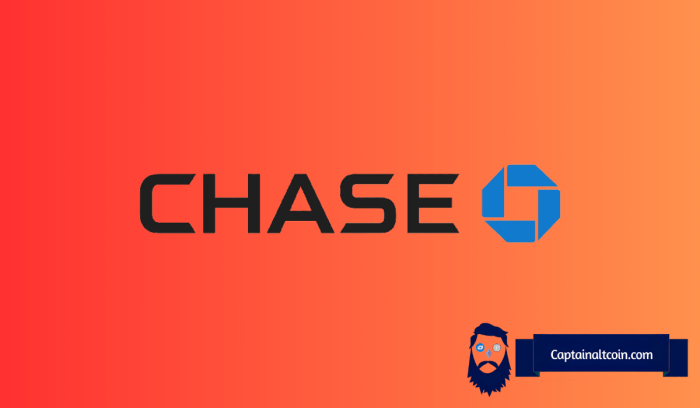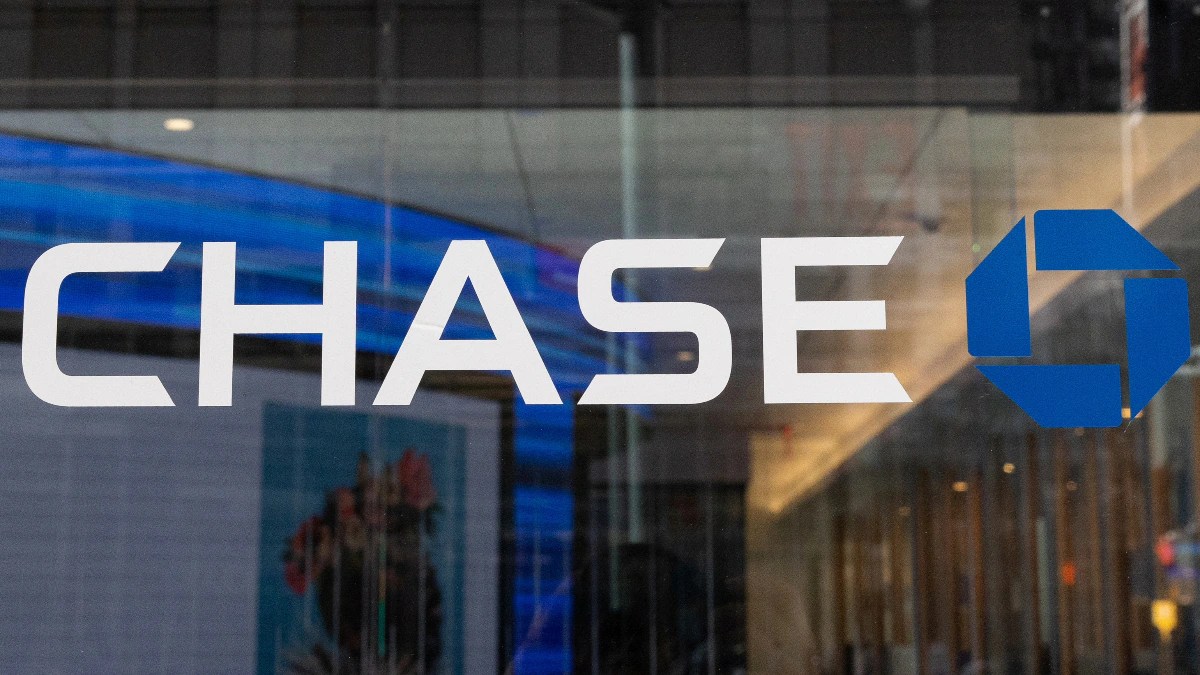JPMorgan Chase UK bans crypto transactions, sending ripples through the UK’s cryptocurrency market. This move, fueled by concerns about regulatory uncertainty and potential risks, raises questions about the future of cryptocurrency adoption in the UK. While JPMorgan Chase UK cites concerns about the lack of regulatory clarity and the inherent volatility of cryptocurrencies, the decision has sparked debate and uncertainty within the industry.
This ban has significant implications for both individuals and businesses. Customers who use cryptocurrencies may need to find alternative banking solutions, while businesses operating in the cryptocurrency space face challenges in navigating the evolving regulatory landscape. The decision also highlights the growing role of financial institutions in shaping the future of cryptocurrency regulation.
JPMorgan Chase UK’s Crypto Transaction Ban

JPMorgan Chase UK, a prominent financial institution, has made headlines by banning its customers from engaging in cryptocurrency transactions. This decision has sparked debate within the financial and cryptocurrency communities, raising questions about the future of crypto adoption in the UK.
Rationale Behind the Ban
JPMorgan Chase UK’s decision to prohibit cryptocurrency transactions is rooted in its assessment of the risks associated with this emerging asset class. The bank cites concerns about volatility, regulatory uncertainty, and the potential for money laundering and other illicit activities.
Impact on the UK’s Cryptocurrency Market
The ban’s impact on the UK’s cryptocurrency market is multifaceted. While some argue that it could deter investment and hinder growth, others suggest that it might push investors towards alternative platforms and exchanges.
The ban could lead to a decrease in institutional investment in cryptocurrencies in the UK, as major financial institutions are hesitant to participate in a market with high volatility and regulatory ambiguity.
Comparison with Other Financial Institutions
JPMorgan Chase UK’s decision stands in contrast to the policies of other major financial institutions regarding cryptocurrency transactions. Some institutions have embraced crypto, offering trading and custody services, while others have adopted a more cautious approach.
- Coinbase:This leading cryptocurrency exchange offers a wide range of services, including trading, custody, and institutional investment solutions. Coinbase has actively sought to engage with regulators and promote responsible crypto adoption.
- Goldman Sachs:The investment bank has entered the cryptocurrency market, offering trading and custody services to institutional clients. Goldman Sachs recognizes the potential of cryptocurrencies but emphasizes the need for robust regulatory frameworks.
- Morgan Stanley:While Morgan Stanley offers limited crypto-related services, it has expressed interest in the potential of blockchain technology and its applications in various industries.
Regulatory Landscape and Crypto: Jpmorgan Chase Uk Bans Crypto Transactions
The UK’s regulatory landscape for cryptocurrencies is evolving rapidly, reflecting the growing interest in digital assets and the need to balance innovation with consumer protection. The recent ban on crypto transactions by JPMorgan Chase UK adds another layer of complexity to this evolving environment, raising questions about the future direction of regulation in this space.
Impact of the Ban on Regulatory Framework Development
The JPMorgan Chase UK ban highlights the challenges of navigating the regulatory gray areas surrounding cryptocurrencies. While the UK government has taken steps to establish a regulatory framework for crypto, the ban underscores the need for clearer and more comprehensive guidelines.
This ban could have several implications for the development of a regulatory framework:
- Accelerated Regulatory Clarity:The ban may prompt regulators to expedite the development of a more robust and transparent regulatory framework for cryptocurrencies. This could involve establishing clear definitions for different types of crypto assets, outlining licensing requirements for crypto businesses, and clarifying consumer protection measures.
Browse the multiple elements of ai governance critical trustworthy explainable ai to gain a more broad understanding.
- Increased Scrutiny of Crypto Businesses:The ban could lead to increased scrutiny of crypto businesses operating in the UK. Regulators may intensify their oversight of these companies, focusing on areas such as anti-money laundering (AML) compliance, financial stability risks, and consumer protection.
- Impact on Innovation:While the ban may be intended to mitigate certain risks, it could also stifle innovation in the crypto sector. The lack of clear regulatory guidance and the potential for bans may deter some businesses from investing in the UK market.
Role of Financial Institutions in Shaping Crypto Regulation, Jpmorgan chase uk bans crypto transactions
Financial institutions play a critical role in shaping the future of cryptocurrency regulation. Their decisions and actions can have significant implications for the development and adoption of cryptocurrencies.
- Adoption and Integration:As seen with JPMorgan Chase’s ban, financial institutions can influence the adoption of cryptocurrencies by choosing to offer or restrict access to these assets. This decision can impact the availability and accessibility of cryptocurrencies for consumers and businesses.
- Policy Advocacy:Financial institutions can advocate for policies that promote responsible innovation in the crypto space. This may involve working with regulators to develop clear and effective regulations that balance innovation with consumer protection and financial stability.
- Investment and Development:Financial institutions can invest in and develop crypto-related technologies, contributing to the growth and evolution of the crypto ecosystem. This can involve investing in blockchain startups, developing new crypto-based financial products, or participating in crypto research and development.
Impact on Customers and Businesses

JPMorgan Chase UK’s decision to ban crypto transactions has significant implications for both customers and businesses operating in the cryptocurrency space. The ban restricts access to a key financial service for individuals and companies seeking to engage with cryptocurrencies, potentially leading to disruptions and shifts in the UK’s crypto landscape.
Impact on Customers
The ban on crypto transactions directly affects JPMorgan Chase UK customers who utilize cryptocurrencies. These customers may face difficulties in accessing their funds, executing trades, or managing their crypto portfolios. This can lead to inconvenience, financial losses, and a lack of access to a growing financial market.
- Limited Access to Funds: Customers may encounter difficulties withdrawing or depositing funds related to crypto transactions, hindering their ability to manage their crypto holdings.
- Trading Restrictions: The ban restricts customers from trading cryptocurrencies directly through JPMorgan Chase UK, forcing them to seek alternative platforms and potentially incurring higher fees or reduced liquidity.
- Reduced Investment Opportunities: The ban limits customers’ access to a potentially lucrative and rapidly evolving investment market, restricting their ability to diversify their portfolios and explore new opportunities.
Impact on Businesses
The ban presents challenges for businesses operating in the UK’s cryptocurrency sector. These businesses may face difficulties in processing payments, accessing banking services, and establishing relationships with financial institutions. The ban could also impact their ability to attract investors and expand their operations within the UK market.
- Payment Processing Challenges: Businesses may encounter difficulties in processing crypto payments from customers, potentially leading to lost revenue and customer dissatisfaction.
- Limited Banking Services: Businesses may face difficulties in accessing banking services, such as account opening, payment processing, and credit facilities, hindering their ability to operate effectively.
- Reduced Investor Confidence: The ban could discourage investors from engaging with UK-based cryptocurrency businesses, impacting their ability to raise capital and expand their operations.
Alternative Options
Despite the ban, customers and businesses can still engage with cryptocurrencies through alternative options.
- Alternative Financial Institutions: Customers and businesses can explore other financial institutions that offer crypto services, such as digital banks or specialized crypto exchanges.
- Decentralized Finance (DeFi): DeFi platforms offer a range of financial services, including lending, borrowing, and trading, without relying on traditional financial institutions.
- Peer-to-Peer (P2P) Platforms: P2P platforms facilitate direct transactions between individuals, offering an alternative to traditional financial institutions for buying and selling cryptocurrencies.
Future of Cryptocurrency in the UK

While JPMorgan Chase UK’s ban on crypto transactions might seem like a setback for the cryptocurrency industry, it’s important to understand the bigger picture. The UK’s stance on cryptocurrency is still evolving, and this decision doesn’t necessarily signal a complete rejection of the technology.
Instead, it might be a catalyst for more robust regulations and a clearer framework for the future of crypto in the UK.
Impact of the Ban on Cryptocurrency Adoption
The ban on crypto transactions by JPMorgan Chase UK is likely to have a mixed impact on the adoption of cryptocurrency in the UK. On one hand, it could discourage some investors and businesses from engaging with crypto due to reduced access to traditional financial institutions.
This could lead to a decrease in the overall volume of crypto transactions within the UK. On the other hand, the ban might push some individuals and businesses to seek alternative solutions, potentially accelerating the development of decentralized finance (DeFi) platforms and other crypto-native services within the UK.
This could ultimately lead to a more resilient and independent crypto ecosystem in the UK.
Factors Influencing Cryptocurrency Regulation
The future of cryptocurrency regulation in the UK will be influenced by a number of factors, including:
- Government Policy:The UK government is currently developing a regulatory framework for crypto assets. The Financial Conduct Authority (FCA) is playing a key role in this process, and its stance on crypto will have a significant impact on the industry’s future.
The FCA’s approach is likely to be influenced by factors such as investor protection, financial stability, and the potential for innovation.
- International Cooperation:The UK is likely to collaborate with other countries to develop a consistent regulatory framework for crypto assets. This will help to ensure that the UK remains a competitive and attractive location for crypto businesses. The UK’s position on crypto will be shaped by the broader global regulatory landscape, as well as the actions of other major economies.
- Technological Advancements:The rapid pace of technological innovation in the crypto space is constantly pushing the boundaries of what’s possible. New technologies such as blockchain, smart contracts, and decentralized finance are creating new opportunities for crypto assets and services. The UK government will need to keep up with these advancements and adapt its regulatory approach accordingly.
Role of Innovation and Technological Advancements
Innovation and technological advancements will play a crucial role in shaping the future of cryptocurrency in the UK.
- Decentralized Finance (DeFi):DeFi platforms offer a range of financial services, such as lending, borrowing, and trading, without the need for traditional intermediaries. These platforms have the potential to disrupt the existing financial system and offer greater financial inclusion. The UK government will need to consider how to regulate DeFi platforms while encouraging innovation and protecting consumers.
- Non-Fungible Tokens (NFTs):NFTs are unique digital assets that can represent ownership of anything from artwork to virtual real estate. The NFT market is growing rapidly, and the UK government will need to determine how to regulate NFTs, considering their potential for both innovation and fraud.
- Central Bank Digital Currencies (CBDCs):Several countries, including the UK, are exploring the possibility of issuing their own CBDCs. A CBDC could offer a number of advantages, such as increased efficiency and security for payments. The UK government will need to decide whether to issue a CBDC and how it would interact with existing crypto assets.





